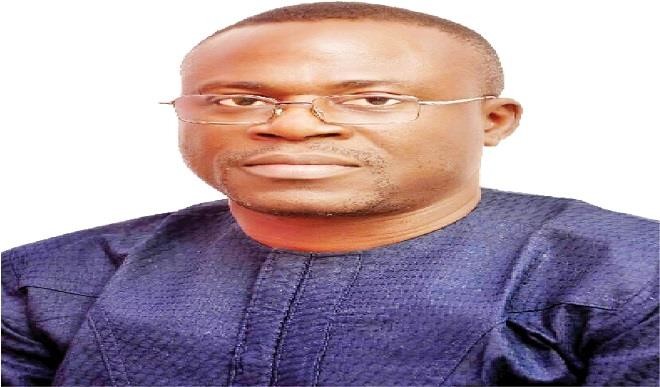You’re able to throw punches through poetry – Olumide Olaniyan
Bookshelf: Your debut book, a collection of poetry titled ‘Lucidity of Absurdity’ was published recently. Why did you choose such a title? Olumide Olaniyan: I have seen absurd things happening in our society and I think as a people, we are in a better position to solve our problems. This is what I try to […]


Bookshelf: Your debut book, a collection of poetry titled ‘Lucidity of Absurdity’ was published recently. Why did you choose such a title?
Olumide Olaniyan: I have seen absurd things happening in our society and I think as a people, we are in a better position to solve our problems. This is what I try to pass across in my work.
Bookshelf: The collection explores a variety of themes which include politics, history, relationships and so on. While you wrote, what did you seek to achieve?
Olaniyan: Many poems in this collection are centred on issues in Nigeria and various human conditions that Nigerians are going through. ‘Succubus’, for example looks at how the people have been severely deceived by the governing elites. The people follow without asking questions and out of ignorance are unable to call their leaders to order. This creates a slave, master relationship as seen in some poems. A human being has rights and the freedom to live his life as he sees fit, whether rich or poor, black or white.
Bookshelf: The third part of the book is titled ‘Humanity – Slavery and History’, but it seemed you were talking about a different kind of slavery and not the Atlantic Slave Trade…
Olaniyan: It still talks about the master, slave kind of relationship. Before colonialism, there was the slave trade era where Europeans carted away Africans to work in their plantations. But the poems generally talk about the haves and have-nots and the fact that slavery is still very much in our society since there’s subjugation, where some are put down and others sit at the top.
Bookshelf: You have been writing for two decades now. Is there a particular reason why you released your first book this year?
Olaniyan: I started with short stories, then poetry. I wrote short stories while I was in secondary school, stories on human condition and day-to-day relationships. But later I found I could communicate better through poetry, throw punches and address quite a number of issues. It may be short, but very powerful. I have seen quite a number of poets who have challenged institutions in their time. I believe that through poetry, we can bring about a better world.
Bookshelf: How does inspiration for your poems come to you?
Olaniyan: I have read quite a number of black history books, like those written by Malcolm X. Mandela was a major inspiration in the way he challenged the situation in his country and at the end of the day he was successful. Then there were those that didn’t see the end of their struggle. As Mandela said in his book ‘A Long Walk to Freedom’, after climbing several mountains, there are still several to climb and it’s not an individual’s journey, it’s for one to make his contribution and others to continue. Of course, there’s Wole Soyinka whose writing has been of tremendous influence to me. W.E.B. Du Bois and other Africans who have challenged issues of slavery, colonialism, and economic dominance or imbalance across the world.
Bookshelf: Have you sent in your book as an entry for the Nigerian Prize for Literature?
Olaniyan: Yes, I have already sent in my work
Bookshelf: What are your expectations?
Olaniyan: My interest is not to win at all cost. I believe it will give the judges the opportunity to look at various works and pick the best. Most importantly for me is that a lot of people from within and outside Nigeria see my work, especially those who appreciate protest poems geared toward bringing about change in the society.
Bookshelf: In 2016 you were named one of the winners in the poetry category of the Mandela Writing Contest, for your poem ‘One Sojourn of the Moon’. How do you view the gradual but steady rise in literary awards in Nigeria?
Olaniyan: I think it’s very good because it helps people to showcase and improve their work, but most importantly to contribute to the society. Speaking the truth, encouraging the downtrodden to rise up, especially in situations where they have been dehumanised. For me, more importantly, my work is out there to challenge injustices in Nigeria.
Bookshelf: What’s your opinion about mentoring being a key ingredient in making a successful writer?
Olaniyan: Mentoring is extremely important to a writer’s success. I have benefitted from mentors like Emman Shehu of Abuja Writers Forum and from the works of other scholars. My writing has been greatly influenced by my study of history, psychology and philosophy.
Bookshelf: What are you working on at the moment?
Olaniyan: I’m working on my second collection of poetry, which is close to fifty poems. Hopefully it will be published early next year.
